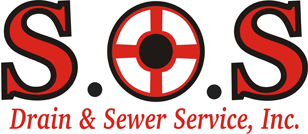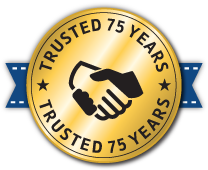Homeowners insurance helps people with many common problems around the home. That’s why our customers are often surprised to hear that there is no guarantee their insurance will pay for sewer problems. If you have a sewer line clog, backup, or line break, you need to understand what your insurance does and does not cover for your sewer.
How Homeowners Insurance Covers Sewer Problems
It’s natural to reach out to your insurance company when you have a major problem with your home. Insurance companies will readily cover claims such as fire damage, storm damage, or falling objects. But sewer lines are different in a few important ways.
There are a few general rules of thumb when it comes to homeowners insurance claims:
- The damage happened in a sudden and unexpected manner;
- Whatever caused the damage was outside of your control;
- The damage is on your property;
These three factors are very important to consider when it comes to sewer line failures.
Sudden, Unexpected Damage
The first consideration is that the damage is sudden and unexpected. This isn’t a hard rule, but it’s a good way to think of what your insurance will and won’t cover. For example, a tree limb falling on your house and damaging your roof will usually be covered by insurance, but leaks caused by an old, worn out roof generally aren’t.
Sewer damage is the same way. It’s important to consider what caused your sewer line to clog or break. If your sewer backup was caused by a frozen pipe bursting under your home, your homeowner’s insurance will probably cover the damages. However, if the sewer problem was due to tree roots slowly infiltrating your sewer line over months or years, you’ll have to foot the bill yourself.
Damage Outside Your Control
The second important consideration is that the damage has to be outside your control. That means if the problem is caused by your own negligence or lack of care, your insurance won’t be of much help.
For your sewer line, that means you probably won’t get assistance if the line breaks because it was old or in poor condition. Even if the break was sudden, the pipe itself degraded over time.
Damage On Your Property
Your homeowner’s insurance has very specific rules about where insurance liability stops. If your insurance covers your sewer at all, they will only cover it to the edge of your property line. This can be a problem because your sewer line probably extends past your property and onto city land. Unfortunately, it’s usually still your responsibility to fix it even if the break is on city property.
Most cities will only take responsibility for breaks and problems in the sewer main itself. Any damages to the sewer laterals – the lines that connect your house to the main – are up to the homeowners. In effect, the sewer line is your property up to where it connects to the main, even if it’s not on your land.
However, insurance companies usually will not cover claims that aren’t on your physical property. If your sewer line breaks under city ground, you probably won’t be able to file a claim.
How to Get Help Paying for Sewer Problems
So what do you do if you think your insurance won’t cover a sewer problem? You have a few options that can help you deal with these costs when they arise.
The first and best option is to check with your insurance company to see if they offer any optional sewer coverage. Some insurance providers offer extra endorsements or riders that cover common sewer problems like backups and clogs. However, they do not all cover the same damages or provide the same amount of coverage. Make sure you read carefully before you sign up.
Another option is a home warranty or sewer line protection plan. These private plans act as a separate “insurance” policy for your sewer line and can help pay for damages. Beware, though, that they aren’t all equal. Some will try to deny almost every claim so they can avoid having to pay out.
Finally, you can do your best to avoid sewer backups in the first place. Avoid putting wet wipes, paper towels, and fats or grease down your drains. Keep an eye on trees or bushes growing near your sewer line. And consider getting regular sewer inspections and cleanings to catch problems early on.
At S.O.S Drain & Sewer Cleaning, we specialize in helping Minneapolis and Twin Cities homeowners with sewer problems of all types. Contact us today if you have a question or need help.



